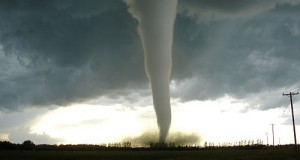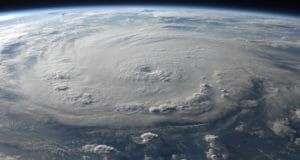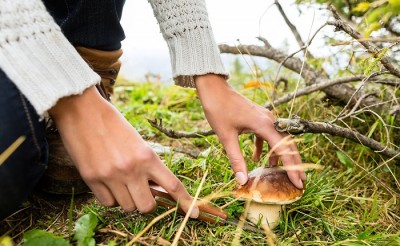
Image source: modernfarmer.com
Of all the possible disaster scenarios we face, having the grid go down is one of the scariest. Modern society is so dependent on electrical power that when it is gone, everything comes to a stop. Some places, like hospitals, have backup generators to provide them with power, but that will only last as long as their fuel supply does. When that’s gone, so is their power.
The thing is, there are many different things that could cause the grid to go down. Granted, most of them require some sort of attack by an enemy, whether by hacking, an electromagnetic pulse (EMP) or direct acts of terrorism. But the truth of the matter is, taking the grid down isn’t all that hard. It’s a very effective, cheap mission kill, with enormous long-term effects.
According to a study by the Department of Homeland Security, about 90 percent of the U.S. population would die as a result of an EMP that left the grid down for a year. (The same is true of a solar flare.) It’s not the EMP itself that would kill, but doing without things that we all need to survive. Of those people, over half of them would simply starve to death.
The U.S. is one of the biggest food producing countries in the world. Food exports contribute over $100 billion to our annual exports. But without electrical power, the equipment to harvest and move that food will quickly fail, leaving much of the food we would normally harvest and ship to market to spoil on the stalk. Foods that are harvested won’t be able to ship to consumers. So, our huge agricultural industry may keep local people fed, but it won’t help the majority of the country.
If you and I don’t want to become a statistic in such a situation, we’ll need to know where to come up with our own food. Here is a list of ways for finding the necessary food to meet your family’s needs when the grid goes down.
1. Stockpile
The first place you should be able to look for food is your own stockpile of emergency supplies. Granted, in the case of a major event that destroys much of the grid, your food stockpile may not be enough to last. But it will be enough to get you started and keep your family eating while you’re working on some of these other food sources.
2. Plant a Vegetable Garden
No matter how big or small your backyard is, you can raise food in a vegetable garden for continued sustenance.
New Survival Seed Bank™ Lets You Plant A Full Acre Crisis Garden!
One big suggestion here is don’t wait until the grid goes down to start gardening. I’ve learned the hard way that it takes a couple of years to get a good vegetable garden going. You’re going to need to get your soil in good shape, which is the most important part of gardening. That can take at least a year. You’re also going to need to learn how to garden, which isn’t as easy as some people make it seem.
Make sure you have a good stock of heirloom seeds for your garden. Those are the only type of seeds which will produce fruit that you can harvest seeds from. This is important, as the seeds you harvest are what are going to make it possible for you to garden the following year.
3. Raise Chickens
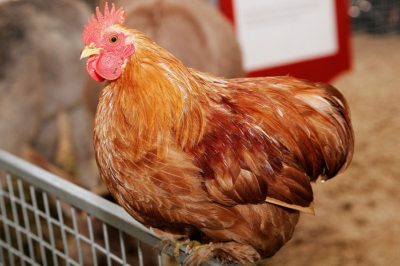 Chickens are one of the easiest ways of growing animal protein. They will eat literally anything, including other chickens. Apparently their mothers didn’t tell them that cannibalism was a no-no. You can either allow them to lay eggs and harvest the eggs to eat – giving you a long-term source of protein – or harvest the chickens themselves.
Chickens are one of the easiest ways of growing animal protein. They will eat literally anything, including other chickens. Apparently their mothers didn’t tell them that cannibalism was a no-no. You can either allow them to lay eggs and harvest the eggs to eat – giving you a long-term source of protein – or harvest the chickens themselves.
Chickens fall into two basic categories: layers and fryers. You’ll want to make sure that you buy the right type of chickens for how you are intending to use them. Generally speaking, layers don’t provide as much meat and fryers don’t lay as many eggs. However, there are a few breeds of chickens which work well for both. Of course, if you want to continue raising fryers, you’ll need a rooster to fertilize the eggs. If all you want are eggs, you don’t need to have a rooster around.
4. Raise Fish
Some species of fish, like tilapia, are very easy to raise and provide a considerable amount of animal protein for very little investment. Tilapia grow well in a wide range of climates, especially warmer ones. They grow fairly quickly, although they are not a large fish. They also do a pretty good job of cleaning their own tank, as they will eat algae. This eliminates the need to clean their tank or pond as much.
There are two problems with raising fish to eat. First of all, you’ll need to find something that you can use to feed them. That will have to be raised as well, as there is no way you can stockpile enough fish food to last the rest of your live.
The second problem is keeping your fish population alive through the winter. This is an especially serious problem if you live in a part of the country where you have cold winters. When ponds freeze, the fish die. So, you’ll either need a very deep pond or to move part of your fish population indoors and keep them in a tank for the winter.
5. Raise Rabbits
Rabbits are another excellent source of animal protein. Once again, they are easy to raise and tend to multiply rapidly. They can be fed mostly excess from your vegetable garden, as well as the parts you cut off and don’t use. Rabbit pellets can be recycled through your compost pile, providing nutrients for your vegetable garden.
If you raise rabbits, be sure to save the pelts and tan them. A rabbit fur coat could be just the thing to keep your kids warm in the wintertime.
6. Hunting
I wouldn’t count on hunting as a way of feeding my family after the grid goes down, but I wouldn’t discount that possibility either. The problem will be that too many people will be hunting. This will thin out the game populations, especially near cities and towns. It also will probably mean that there will be a lot of good game meat that goes to waste, as people don’t preserve it properly.
Discover The World’s Healthiest Storable Survival Food!
Nevertheless, hunting is a way of augmenting your food supplies, especially if you live within walking distance of a good hunting area. Don’t forget small game, either, which are always more plentiful.
One way of gaining an advantage for hunting in that time is to learn how to hunt without using bait corn. Many hunters are limited in their ability to bring home game because they don’t know the animal’s habitats and habits. By knowing those things, you can go where other hunters don’t go and still bring home game.
7. Fishing
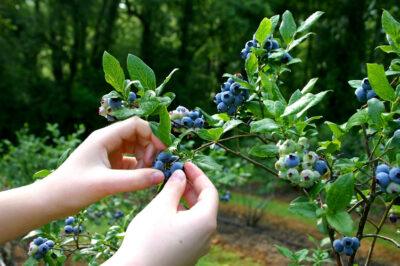 Like hunting, there will be a lot of people trying to fish to feed themselves. That doesn’t mean that you can’t try as well, just that you need to find a place to go fishing where other fishermen aren’t going. This will be easier for those who live out in the country than for those who live in big cities.
Like hunting, there will be a lot of people trying to fish to feed themselves. That doesn’t mean that you can’t try as well, just that you need to find a place to go fishing where other fishermen aren’t going. This will be easier for those who live out in the country than for those who live in big cities.
8. Foraging
Nature grows a wide variety of plants that are edible, at least in part. However, there also are plants out there which will kill you if you have them for dinner. Knowing which are safe and which are dangerous requires a bit of study.
Buy yourself a good book on what plants in your area are edible. A local book will be better than a nationwide one, simply because it will focus on what grows in your area. If you’re lucky, it might even have some recipes for how to make your finds taste almost as good as the food you’re used to eating.
9. Gleaning From Farms
When farmers harvest, their equipment doesn’t manage to get every bit of grain or produce. There is always a bit left. This leaves the opportunity for you to go in and manually harvest what is left. This is an old custom, where farmers used to leave a bit in place for the poor to pick and eat.
Of course, if the farmers are unable to harvest with their equipment, there will be a lot more available than just what their machinery misses. In that case, you’ll want to get as much as you can before it spoils. It’s always best to talk to the farmer and work out some sort of arrangement with him or her.
What would you add to this list? Share your thoughts in the section below:
When The Grid Is Down, Which Items Will Be The First To Disappear From Stores? Read More Here.
 Off The Grid News Better Ideas For Off The Grid Living
Off The Grid News Better Ideas For Off The Grid Living

